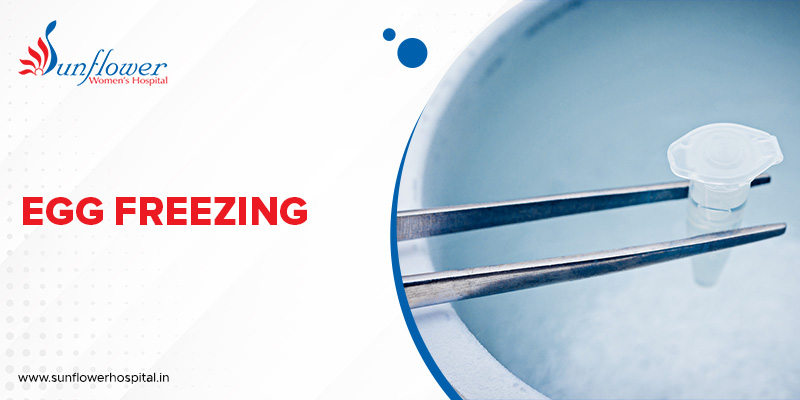Many women often delay starting a family for social, educational, or professional reasons, until their late thirties. It is commonly known that as a woman ages, her ability to conceive successfully and the quality and quantity of her eggs both declines. Even from an IVF treatment, successful pregnancy outcome declines with advanced age.
Egg freezing offers women the potential to freeze healthy eggs at a young age when they are not ready for pregnancy, however, can preserve fertility. Apart from social egg freezing, we can freeze eggs for cancer patients to preserve their fertility.
Women's biological clocks can be frozen through egg freezing or oocyte vitrification. By delaying pregnancy through egg freezing, you can live life on your terms without worrying about the quality of your eggs deteriorating as you get older. Then, when you're ready to grow your family, you can have your eggs fertilized and have the resultant embryo placed in your uterus for implantation.
What is the Ideal Age for Egg Freezing?
Women can freeze eggs at a young age when there is a good ovarian reserve and response. It is the late 20s to early 30s
Process of Egg Freezing:
Step 1: Investigation
If you are thinking of egg freezing, go to a fertility expert. Get yourself checked for ovarian reserve and general health check-ups. That would give us an idea of how the success of the egg-freezing process.
Ovarian reserve check-up includes some blood tests including AMH (Anti Mullerian Hormone) and an ultrasound scan to see antral follicle count in the ovaries. That will give us an idea of possible how many eggs we can get through the process.
Step 2: Ovarian Stimulation
Your ovaries will be stimulated with injections to create a lot of eggs. You will be monitored by doing an ultrasound scan to see the number of follicles and size of the follicles.
Step 3: Egg Retrieval
The next step is the egg retrieval process, which is done usually 10-12 days after ovarian stimulation. The egg retrieval process involves the use of ultrasound-guided follicle aspiration. This process is done under anaesthesia/sedation.
Step 4: Freezing
The unfertilized mature eggs are frozen in a process called vitrification. The process involves rapid cooling to prevent the formation of ice crystals on the eggs.
How Long We Can Freeze Eggs?
Although eggs can be preserved for a number of years, but the duration for which they can be stored will vary with each hospital. we store eggs for up to 10 years. However, if a patient is going for cancer treatment, her eggs can be stored for 10 years after requisite permission from the National ART Board.
How Successful Is Egg Freezing?
Frozen vitrified eggs have a survival probability of between 80 and 85%. This implies that some of the eggs in storage might not endure the freeze-thaw cycle. The frozen eggs are defrosted and fertilized with your husband's sperm when you are ready to get pregnant. The resulting embryos are then put inside your uterus.
Not all eggs fertilize, but about 80 to 90% do.
What are the Factors Determining the Success of Egg Freezing?
With the evolving vitrification techniques, the post-warming results have improved.
The success of the egg freezing and thawing procedure depends on factors including:
- Age at the time of freezing the eggs
- Sperm quality
- Facilities at the clinic where you have frozen eggs
- The number of eggs
As studies suggest younger patients (<30) have better quality eggs as compared to patients with advanced age (>35).
Reasons to Preserve Your Fertility Today
- Do you want to postpone your marriage and pregnancy? Egg freezing could reduce your risk of future fertility problems. Although egg freezing cannot guarantee a pregnancy, it is a useful technique for saving good-quality eggs for younger women.
- To allow for educational pursuits
- To have time to develop a professional career or business.
- Give your relationship time to mature.
- To achieve control over your fertility.
- To preserve fertility for cancer patients who needed chemotherapy for treatment.
So, if you are planning any of the above and want to play safe to preserve your fertility, you can go ahead with egg freezing a new technology in Assisted Reproductive Technology with the help of IVF Center in India.


Leave a Comment